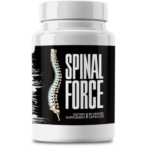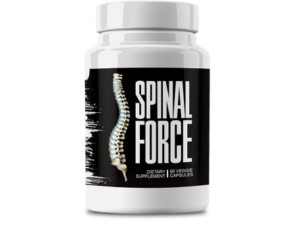This Village-Made Chinese Pain Reliever Eliminates Back And Joint Pain!
The Best Treatments for Chronic Knee Bone Pain

Chronic Knee Bone Pain: Your Guide to Effective Relief
If you're dealing with chronic knee bone pain, you know how it can turn everyday activities into real challenges. Whether it's arthritis, an old injury, or just years of wear-and-tear, that persistent ache can steal your mobility and joy. The good news? You've got options. Let's walk through the causes, symptoms, and best treatments—from simple lifestyle tweaks to surgical solutions—so you can find real relief.
What's Really Causing Your Knee Pain?
That deep, nagging pain in your knee isn't just sore muscles—it's likely coming from the bones or cartilage themselves. Unlike temporary muscle strains, bone pain sticks around and often gets worse when you move.
Why Your Knees Might Be Giving You Trouble
Your knee joints take a beating every day. Over time, the cartilage can wear down, bones can develop tiny fractures, or inflammation can set in. Left unchecked, these issues can lead to chronic pain that just won't quit.
Top Culprits Behind Chronic Knee Pain
- Osteoarthritis: Your knee's shock absorbers wear out, leaving bone rubbing on bone.
- Stress Fractures: Tiny cracks from overuse or weak bones.
- Bone Infections: Rare but serious (and definitely worth ruling out).
- Bone Spurs: Those little bony growths that make your joint feel stiff.
- Rheumatoid Arthritis: When your immune system mistakenly attacks your joints.
Red Flags You Shouldn't Ignore
- A deep ache that won't go away
- Swelling or warmth around the joint
- Morning stiffness that takes hours to loosen up
- Creaking or grinding sensations when you move
- Pain that keeps you up at night
When to Get Your Knee Checked Out
If your knee pain's been hanging around for weeks, making stairs your nemesis, or comes with swelling, it's time to see a doctor. Catching problems early makes treatment way more effective.
Tests That Help Diagnose Knee Issues
- X-rays: Great for spotting fractures or arthritis changes
- MRI/CT Scans: Show the full picture of bones and soft tissues
- Blood Work: Can reveal infections or inflammatory conditions
- Bone Scans: Detect stress fractures or infections
What to Expect at the Doctor's Office
A knee specialist will ask about your symptoms, poke and prod your joint (yes, it might hurt a bit), and likely order some imaging to get to the root of your pain.
Drug-Free Ways to Ease Knee Pain
Before considering surgery, most doctors recommend trying these conservative treatments first.
Movement Is Medicine: Physical Therapy
A good physical therapist can work wonders. They'll create a personalized plan to strengthen the muscles around your knee, improve flexibility, and take pressure off the joint. Water aerobics and cycling are often go-to recommendations.
Medications That Can Help
- NSAIDs: Like ibuprofen—reduce both pain and inflammation
- Steroid Shots: Can calm severe flare-ups (but aren't for long-term use)
- Joint Lubricants: Hyaluronic acid injections for osteoarthritis
Simple Changes With Big Impact
- Lose even a few pounds to lighten the load on your knees
- Invest in supportive shoes or custom orthotics
- Swap running for swimming or elliptical workouts
- Use ice for acute pain, heat for stiffness
When Surgery Becomes an Option
If other treatments haven't helped and your pain's controlling your life, surgery might be the next step.
Signs You Might Need Surgery
- You're avoiding activities you love
- Pain meds and therapy aren't cutting it
- Scans show significant joint damage
Your Surgical Options Explained
- Arthroscopy: Tiny incisions to clean up damaged tissue
- Osteotomy: Shifts weight off the damaged part of your knee
- Knee Replacement: Gold standard for severe arthritis
The Road to Recovery
Post-surgery means physical therapy and patience—full recovery can take months, but most people say it's worth it for the pain relief.
Natural Approaches Worth Trying
Many people find combining conventional treatments with these alternative methods helps even more.
Acupuncture and Chiropractic
Acupuncture might trigger your body's natural painkillers, while chiropractic adjustments can improve joint alignment.
Supplements That Might Help
- Turmeric: Nature's anti-inflammatory
- Glucosamine: May help protect cartilage
- Omega-3s: Found in fish oil—great for joint health
Eating for Better Joint Health
Load up on colorful fruits and veggies, lean proteins, and healthy fats. Skip the processed foods—they can actually increase inflammation.
Keeping Knee Pain at Bay
Smart habits today can prevent bigger problems tomorrow.
Knee-Friendly Exercises
- Quad and hamstring stretches
- Low-impact cardio (think swimming)
- Yoga for flexibility and strength
Everyday Protection for Your Knees
Good shoes matter more than you think! Also, pay attention to your posture and avoid kneeling on hard surfaces.
Activities to Approach With Caution
High-impact sports, heavy lifting, and lots of stair climbing can aggravate existing knee issues.
Your Top Knee Pain Questions, Answered
Is There a Permanent Cure for Knee Bone Pain?
Some conditions (like fractures) heal completely, but arthritis requires ongoing care. The sooner you address it, the better your results.
Bone Pain vs. Joint Pain—What's the Difference?
Bone pain feels deep and localized, while joint pain usually comes with stiffness and swelling.
Do Home Remedies Actually Work?
They can help with mild pain, but serious issues need professional treatment. Think of home care as part of your toolkit, not the whole solution.
Wrapping It Up
Your Knee Pain Action Plan
- Don't wait—early treatment works best
- Try non-surgical options first
- Surgery is there if you really need it
Final Word of Hope
Chronic knee pain doesn't have to be your forever reality. Whether through lifestyle changes, medical treatments, or surgery, relief is possible. Your first step? Talking to a specialist who can create a plan just for you.
Been through the knee pain journey yourself? We'd love to hear what worked for you—drop your story in the comments below!








